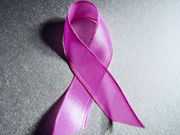No difference in psychosocial adjustment for girls with versus without family history of breast cancer
MONDAY, Oct. 19, 2015 (HealthDay News) — Girls from families with a history of breast cancer experience greater breast cancer-specific distress, according to a study published online Oct. 19 in Pediatrics.
Angela R. Bradbury, M.D., from the University of Pennsylvania in Philadelphia, and colleagues examined the impact of breast cancer family history on psychosocial adjustment and health behaviors among more than 800 girls. The authors assessed psychosocial adjustment (maternal report for 6- to -13-year-olds; self-report for 10- to 13-year-olds), breast cancer-specific distress, perceived risk of breast cancer, and health behaviors (10- to -13-year-olds) among girls with a family history of breast cancer or familial BRCA1/2 mutation (BCFH+), peers without a family history (BCFH−), and their biological mothers.
The researchers found that by maternal report, BCFH+ girls had better general psychosocial adjustment than BCFH− peers. Among 10- to -13-year-old girls, psychosocial adjustment and health behaviors did not differ significantly by self-report. Higher breast cancer-specific distress was reported by BCFH+ girls (P = 0.001). Compared with BCFH− girls, BCFH+ girls were more likely to report themselves to be at increased breast cancer risk (38.4 versus 13.7 percent; P < 0.001), although many were unsure of their risk. Higher daughter anxiety correlated with higher maternal anxiety and poorer family communication, in multivariate analyses.
“Interventions to address daughter and mother breast cancer concerns and responses to genetic or familial risk might improve psychosocial outcomes of teen daughters,” the authors write.
One author disclosed financial ties to Myriad Genetics; a second author disclosed ties to pharmaceutical and biotechnology companies.
Copyright © 2015 HealthDay. All rights reserved.








